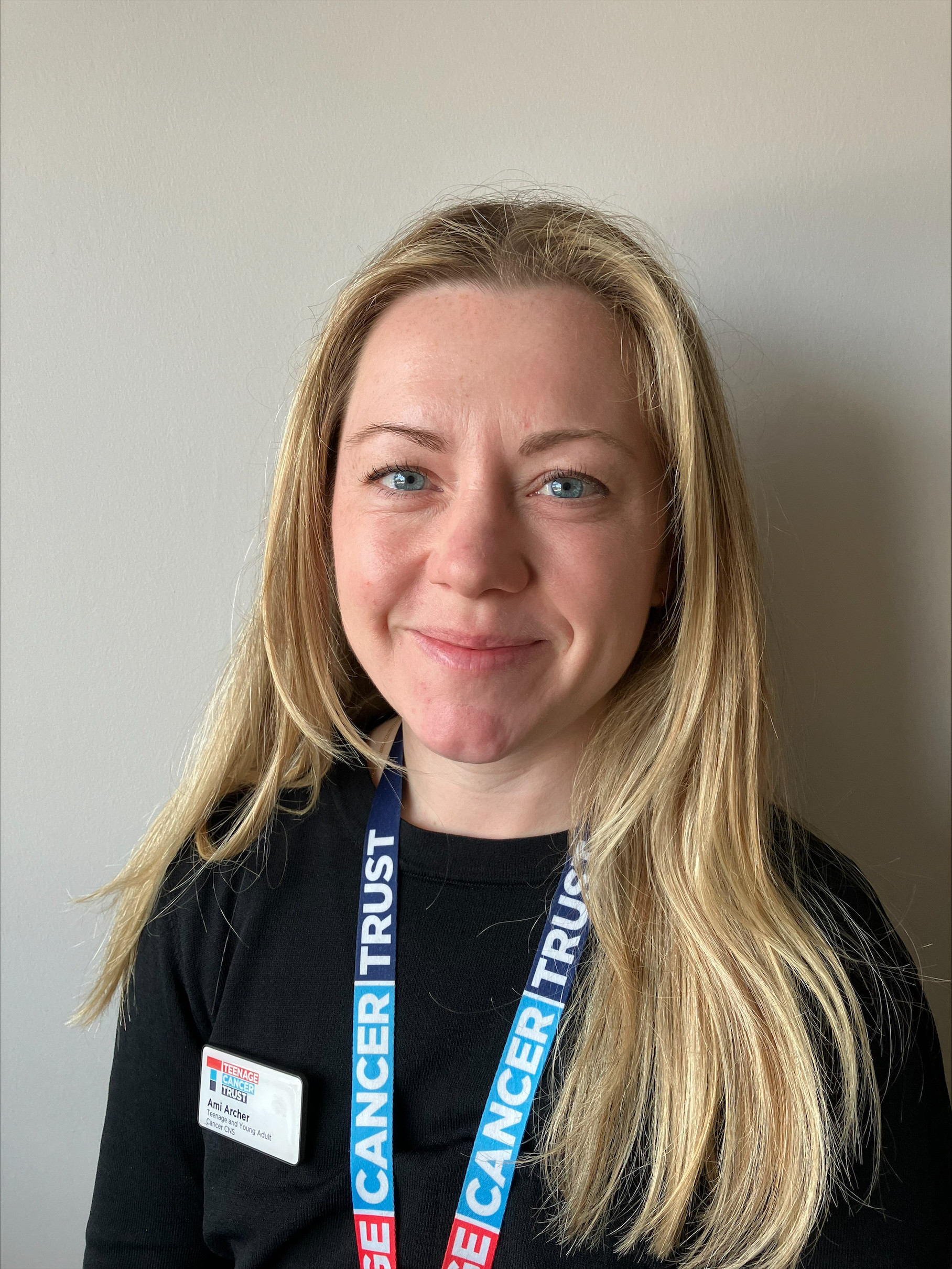
‘All I want to do is reduce the impact of cancer for my patients so they can tackle the other big things going on for them’
Ami Archer, teenage and young adult cancer clinical nurse specialist (CNS), knew that she wanted to work with young people as soon as she stepped into a children’s unit following her nursing training.
Ami said: “I actually started my career working with babies, but when I moved into this role working with teenagers, everything fell into place for me. I love teenagers, they’re hilarious and fun to be around and it helps that I’m naturally a high-energy, silly person, so being with them is easy and fun.”
Ami supports patients, who are between 16 and 24 years old, throughout their cancer journey. Her role is varied but includes co-ordinating the services, advocating for her patients in meetings with other health professionals, and being the person her patients will call if they need help, support or signposting.
Ami said: “The way I see it, particularly at their age, cancer is just one of their problems. They’re at the age where they’re already experiencing lots of big life-changing moments, and it’s easy to feel overwhelmed even without a cancer diagnosis.
“All I want to do is reduce the impact of cancer for my patients so they can also tackle the other big things going on for them. One of the ways to do this is to make sure they have all the knowledge and understanding of their next steps, that way they can feel more in control and less afraid.
“I don’t sugar coat anything, I’m very honest and I think that’s important because my patients need to trust me. Some don’t have much support from their families or the confidence to say no, and so building a genuine and trusting relationship can make a really big difference.”
Ami lives in Kent with her husband and two young children, one of whom is autistic and so she understands both the importance of family, and having a good understanding of those who are neurodivergent.
Ami said: “I feel a special kinship with my autistic and neurodivergent patients. Everyone is different and has different ways of coping, and I enjoy getting to know my patients so that I can work out how best to support them in a way that is going to be the most effective for them personally.
“It’s not just my patients that need support, it’s their families too, and as someone who comes from a big family, I really get that. I encourage my patients to live life to the fullest, and I encourage families to support them with their bucket list even though the natural instinct can often be to want to keep them safe at home.
“It’s a very rewarding and fulfilling career, no day is the same and no patient is the same. It can be sad at times, but my days are generally filled with so much laughter and fun that I wouldn’t want to do anything else.”